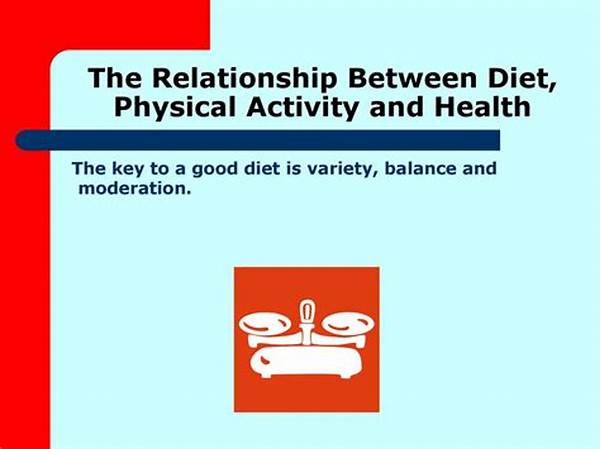The Relationship Between Diet And Speed

In the hustle and bustle of today’s fast-paced world, achieving optimal speed in both mental and physical capacities is more crucial than ever. But here’s an intriguing notion: could what you eat be the missing link to your peak performance? Imagine having the energy of a gazelle, the swiftness of a cheetah, and the clarity of an eagle—all just by refining your diet. The relationship between diet and speed is as intricate as it is fascinating, offering insights that not only improve our performance but also our overall well-being.
Read More : Inspirational Articles On A Healthy Lifestyle From The Modern Sports Community
From professional athletes to busy professionals, diet plays a pivotal role in determining how efficiently we perform various tasks. Whether you’re looking to improve your marathon time, sharpen your focus, or simply keep up with an active lifestyle, understanding the food you consume can be your hidden weapon. This article delves into the captivating realm of how diet can affect speed, backed by stories, statistics, and analysis that not only inform but also entertain.
Can Diet Really Enhance Your Speed?
The relationship between diet and speed isn’t just a trendy topic—it’s a crucial consideration backed by science and personal anecdotes alike. Athletes have long known the magic formula of balancing carbohydrates, proteins, and fats to boost performance. But what if I told you it’s not just about the carbs and protein shakes?
For instance, recent studies highlight how micronutrients—those often-overlooked vitamins and minerals—play a significant role in improving cognitive functions and physical agility. Magnesium supports muscle function, iron boosts your energy levels, and omega-3 fatty acids enhance brain speed. Yes, that salmon you grudgingly eat could be your shortcut to a sharper mind and quicker reflexes.
How Nutrients Impact Physical Speed
Did you know that just a slight deficiency in iron can reduce physical endurance and increase perceived effort during intense exercise? Iron is a crucial component of hemoglobin, the compound in red blood cells that carries oxygen to muscles. When your iron levels are optimal, your body performs at its best, leading to quicker recovery times and enhanced speed.
Another key player in the speed game is hydration. Keeping hydrated ensures your muscles don’t cramp, reducing your recovery time between workouts or intellectual endeavors. Your body is about 60% water, and even a small drop in hydration can significantly impact your mental and physical speeds.
The Mental Speed Boost
The relationship between diet and speed isn’t limited to just physical abilities—it extends to cognitive speed too. Ever struggled with brain fog or a slow day at the office? Your diet might be to blame. Foods rich in antioxidants like blueberries or nuts can invigorate your neural pathways, boosting your mental agility.
Certain foods are also well-known for their mood-enhancing properties, which can indirectly affect your performance speeds. A good mood can be a powerful motivator, whether you’re facing a critical meeting or a challenging workout session.
Real-life Testimonials: The Diet and Speed Connection
Consider Julie, a project manager who was always the last one to finish a task. After consulting a nutritionist, she optimized her diet with lean proteins, whole grains, and leafy greens. Her afternoon slumps became history, and so did her last-place finishes in the company’s quarterly productivity reports.
Read More : Sky Sports Football Updates Injury News For Top European League Players
Or take Samuel, a semi-professional sprinter who plateaued in his sprint times. Once he started integrating magnesium-rich foods into his diet, his recovery time shortened, and he shattered his previous records.
Foods to Include for Speed
Here’s a breakdown of foods that enhance both physical and mental speed:
Crafting Your Speed-Enhancing Diet Plan
Developing a diet that suits your speed goals can seem daunting, but it doesn’t have to be. Start with small changes, like adding a handful of nuts to your breakfast or choosing whole-grain bread over white. Remember, speed is not just about sprinting faster—it’s about sustaining high performance levels over extended periods.
Putting It All Together
In conclusion, the relationship between diet and speed is not just an abstract concept—it’s a practical strategy that can be implemented today. From professional athletes to busy office-goers, everyone can benefit from understanding and harnessing this relationship.
By adopting a mindful approach to eating, you can unlock potential you didn’t even know you had. So, what are you waiting for? Kickstart your journey towards a faster, sharper, and more productive you with just the right diet! The pathway to speed is now at the tip of your fork, ready to be embraced, one delicious bite at a time.



